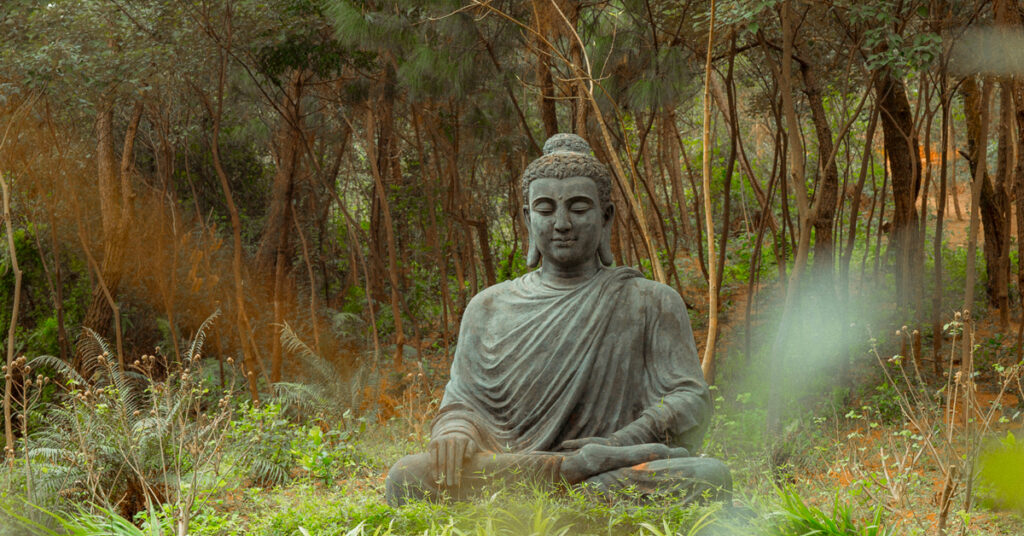Equanimity is a wonderful quality, a spaciousness and balance of heart. Although it grows naturally with our meditation practice, equanimity can also be cultivated in the same systematic way that we have used for loving-kindness and compassion. We can feel this possibility of balance in our hearts in the midst of life when we recognize that life is not in our control. We are a small part of a great dance. Even though we may cultivate a boundless compassion for others and strive to alleviate suffering in the world, there will still be many situations we are unable to affect.
The well-known serenity prayer says, “May I have the serenity to accept the things I cannot change, the courage to change the things I can, and the wisdom to know the difference.” Wisdom recognizes that all beings are heir to their own karma, that they each act and receive the fruits of their actions. We can deeply love others and offer them assistance, but in the end they must learn for themselves, they must be the source of their own liberation. Equanimity combines an understanding mind together with a compassionate heart.
To cultivate equanimity, sit in a comfortable posture with your eyes closed. Bring a soft attention to your breath until your body and mind are calm. Then begin by reflecting on the benefit of a mind that has balance and equanimity. Sense what a gift it can be to bring a peaceful heart to the world around you. Let yourself feel an inner sense of balance and ease. Then begin repeating such phrases as,
“May I be balanced and at peace.”
Acknowledge that all created things arise and pass away: joys, sorrows, pleasant events, people, buildings, animals, nations, even whole civilizations. Let yourself rest in the midst of them.
“May I learned to see the arising and passing of all nature with equanimity and balance.”
“May I be open and balanced and peaceful.”
Acknowledge that all beings are heirs to their own karma, and that their lives arise and pass away following the conditions and deeds created by them.
While you can deeply love and care for others, in the end, their happiness and suffering depend on their thoughts and actions. To find equanimity with others, add this phrase:
“Your happiness and suffering depend on your thoughts and actions and not my wishes for you.”
In the next steps you can wish peace and equanimity for specific people you know and then to those beyond, individually or in groups. Wishing….
“May you learn to see the arising an passing of all things with equanimity and balance.”
“May you have true equanimity.”
“May you be balanced and peaceful.”
Finally you can expand your own field of equanimity to the the whole world.
“May I bring compassion and equanimity to the events of the world.”
“May I find balance and equanimity and peace amidst it all.”






